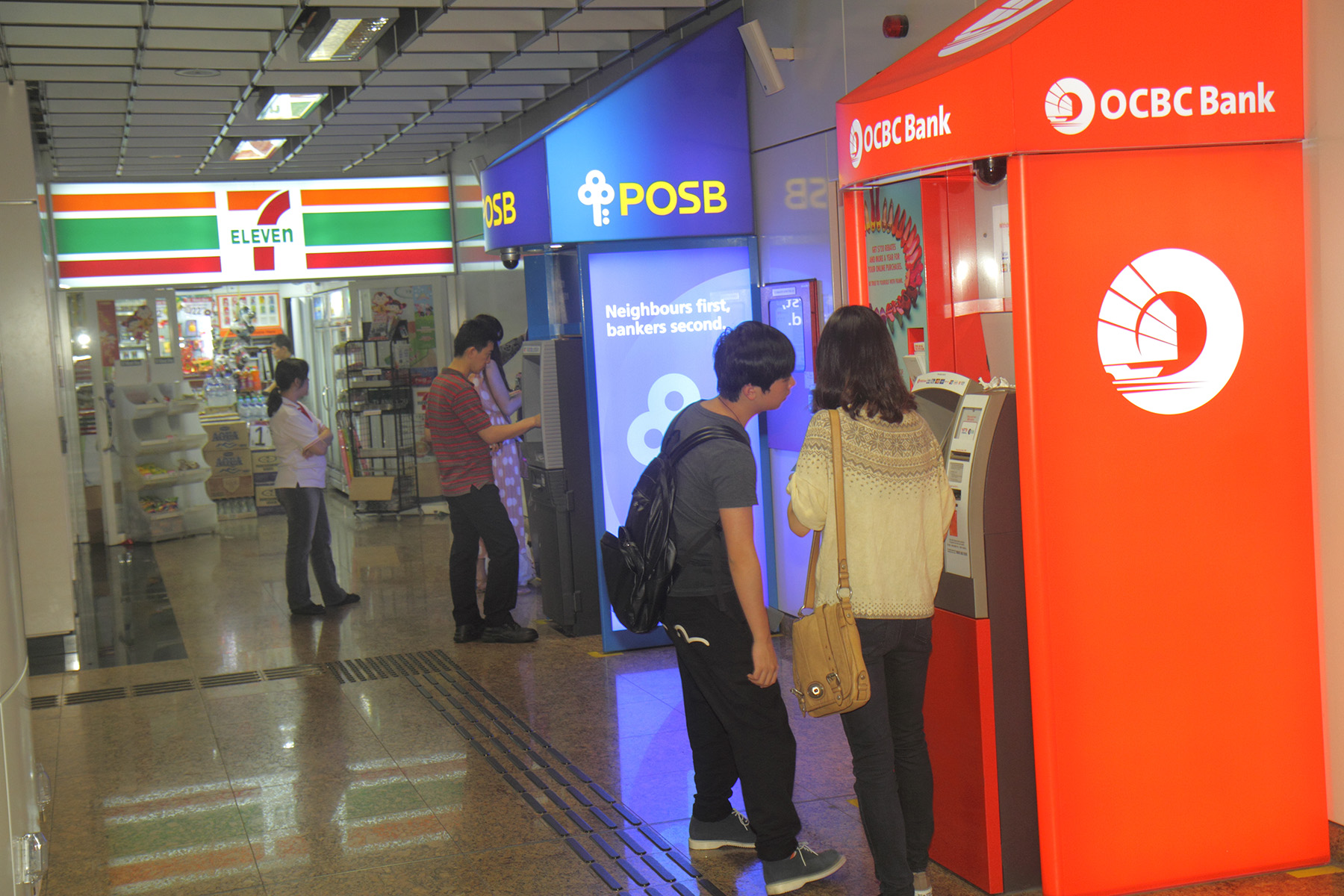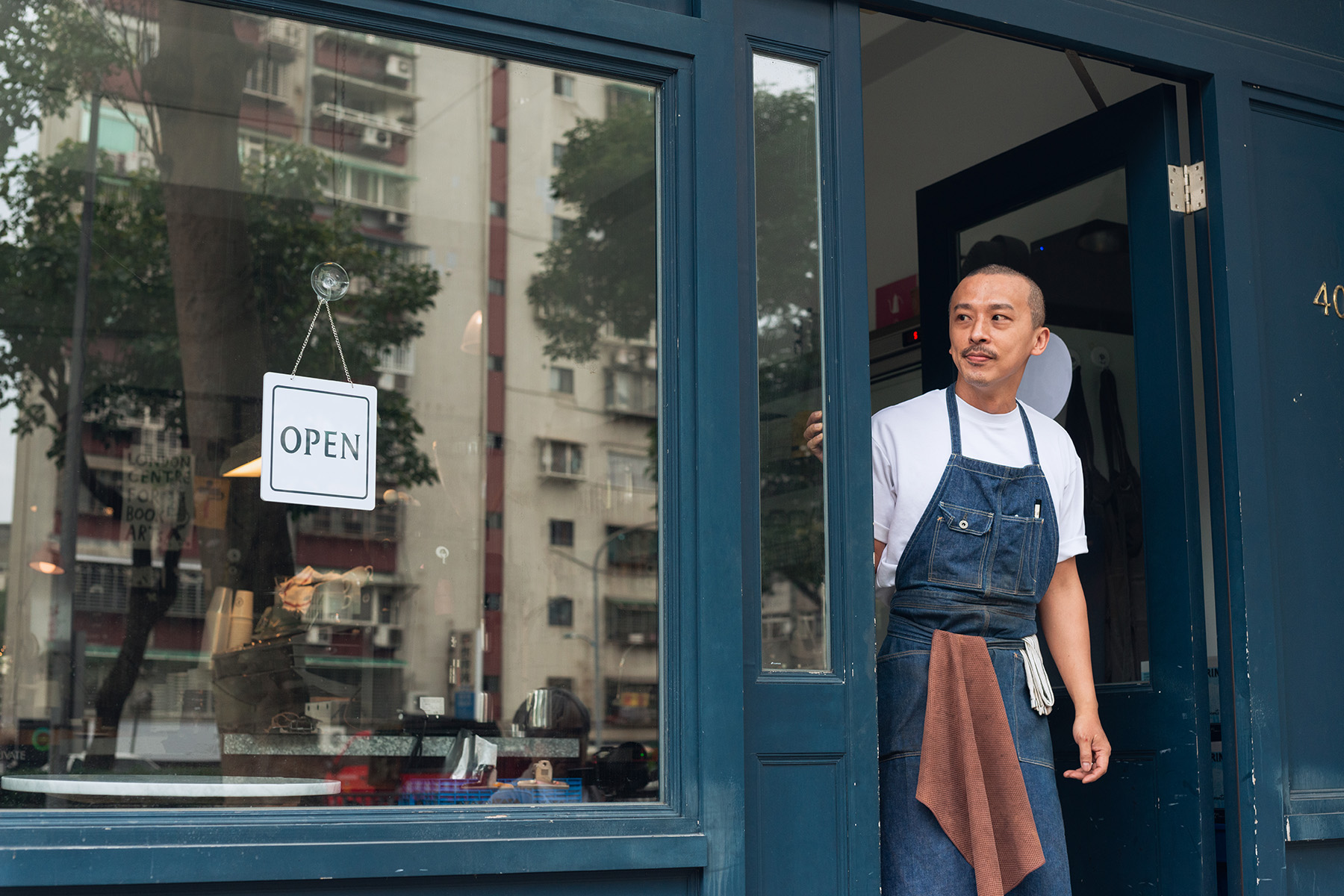A Singapore bank account is essential for any newcomer. From paying your bills to buying groceries, it will be easier to settle into your new country with one. Most importantly, you’ll need it for your salary payments.
Fortunately, the process is quick and easy, and many banks offer expat-friendly services and benefits. Read on for all the information you need to open a bank account in Singapore.
- Banking in Singapore
- Banking services in Singapore
- Manage your money before you have a bank account
- Do you need a bank account in Singapore?
- What types of bank accounts are available in Singapore?
- Choosing a Singaporean bank account
- How does an expat open a bank account in Singapore?
- Managing your bank account in Singapore
- Changing banks or closing a bank account in Singapore
- Open and manage a Singaporean corporate account
- How do you open a bank account in Singapore for your children?
- Can you open a bank account in Singapore with poor credit?
- If you are refused a bank account in Singapore
- Useful resources
Wise
Do your finances go beyond borders? Then you need a fast and secure way to move money internationally. Wise is a global leader in online international money transfers, letting you move money at an exchange rate several times cheaper than your bank. Whatever your personal or business needs, Wise can make your money go further.
Banking in Singapore
Singapore is an important global economic center and has become Asia’s top financial hub. It’s no surprise, then, that the country’s banking sector is robust and innovative.

Digital banks are also gaining popularity, offering a high-tech alternative to traditional banks.
As such, Singapore offers expats several banking options, from local banks to huge multinationals, to suit their financial needs.
Banking services in Singapore
When you open a current or checking account in Singapore, you can expect a debit card and access to online banking. In some cases, your bank may give you a NETS card, a local alternative to a debit card that is widely accepted across the country.

Local expert
Gayatri Bhaumik
NETS cards are old-fashioned, and you rarely see them anymore. Mostly, debit cards are contactless and enabled with a credit function like Mastercard or Visa.
Depending on your income, you may also qualify for a credit card and overdraft.
Singapore is a popular relocation destination. As such, many banks offer expat-friendly services, including multiple currency accounts and faster international transfers.
Which international money transfer services are available?
Expats often find that they have to make international transfers. Expats often have to make international transfers, but the fees can add up when using a bank. Therefore, an alternative service to send remittances regularly can be cheaper and as secure as a bank transfer.
The reputable international money transfer services in Singapore include:
Manage your money before you have a bank account
When you first arrive in Singapore, you might be relying on your bank account from back home. Singaporean ATMs will accept bank cards like VISA and Mastercard.In many cases, they will also accept regular overseas debit cards.

Local expert
Gayatri Bhaumik
However, PIN codes are six digits long, as opposed to four in other countries, which can be confusing. Fortunately, you can still input a shorter PIN, and the ATM will accept the transaction.
ATMs in Singapore do not have a local operator fee, but your home bank may charge you to use your card internationally. So, check in advance, as the amounts can vary significantly from bank to bank. When using a foreign card, you’ll usually be prompted to pay in the local or your home currency. Paying in Singaporean dollars gives you lower fees and a better exchange rate.

In some circumstances, it’s possible to open a Singaporean bank account online before you arrive in the country. For example, OCBC offers a fully digital service to citizens of Hong Kong, Malaysia, Indonesia, and mainland China.
Do you need a bank account in Singapore?
It might be tempting to avoid the hassle of opening a new bank account. However, if you’re living in Singapore, a local account is essential. It’s far cheaper than relying on a foreign bank and opens doors to local payment systems, such as NETS and PayNow.
In addition, if you’re planning to stay in Singapore for a long time and buy a property, getting a mortgage will be simpler if you already have a local bank account.
What types of bank accounts are available in Singapore?
There are several different kinds of bank accounts available in Singapore:
- Current account
- Savings account
- Joint account
- Investment account
- Multi-currency account
Current account
A current or checking account is designed for day-to-day money management. Typically, it includes a debit card, NETS card, or both. Most banks have very few restrictions on opening a current account. However, they usually require the account holder to earn a minimum salary before offering an overdraft, credit card, or other credit facilities.
Savings account
A standard savings account has a low interest rate, but customers can take action to boost it. These include using a credit card, paying bills, or shopping with the bank’s partners.

Another common choice of savings account is a fixed deposit account; customers deposit a certain amount of money for a pre-determined period. The interest rates are higher, but early withdrawal usually results in a penalty.
Joint account
Two or more people can share a joint current or savings account. Couples commonly use them, but some Singaporean banks also offer parent and child accounts, which can help kids learn to manage money. Of course, the child has some access, but the parent retains ultimate control.
Investment account
An investment or brokerage account offers more opportunities to grow wealth than a standard savings account. These have higher minimum requirements than most others, as you’ll need to have some money ready to invest.
Additionally, you don’t always need to be a permanent resident in Singapore to open an investment account. This opens up the possibility of offshore banking, but the minimum initial deposit is very high.
Multi-currency account
This type of bank account can hold 12 or more different currencies and have favorable exchange rates. Digital banks that are popular with expats offering this service include Wise.
Choosing a Singaporean bank account
Singapore’s banking sector is competitive, with financial institutions offering customers various services and bonuses, including secure mobile banking. However, compare banks and make sure you understand the hidden costs. For example, many accounts have a monthly fall-below fee, which will penalize you if your average balance dips below a certain threshold.

DBS, OCBC, and UOB are the largest banks in Singapore, with branches nationwide, without additional ATM operator fees. English – one of Singapore’s official languages – is primarily used in official documents, and all banks will have English-speaking staff. These banks have also shown an increased focus on sustainable business practices, and DBS has even won an international award for corporate responsibility.
If you want to open a savings account, do your research by comparing banks to find one that suits your spending needs. For instance, your interest rate will rise when you use your credit card, pay bills, buy things online, and shop at approved partners.
How does an expat open a bank account in Singapore?
The documents you need to open a bank account in Singapore can vary slightly between banks. You must usually provide the following:
- Passport: Banks will not usually accept a government ID card from another country except Malaysia
- Proof of address in Singapore: Dated no more than three months in advance. This could be a letter from your employer or educational institute or a utility bill
- Immigration paperwork: Your employment pass, student pass, dependent pass, or work permit
You must also show proof of income if you want credit services such as an overdraft.
The process is more straightforward if you have a Singpass, a government-issued digital ID that stores all your relevant data. With a Singpass, it’s possible to open a bank account online. If you don’t have one, you will have to go to a branch in person. The bank usually sends your debit card to your registered address within three working days.
Typically, there is no fee to open a current account, but some banks require a minimum initial deposit.
Mobile banking
Mobile banking is quite sophisticated in Singapore, with traditional banks offering apps so you can manage all your daily financial needs online. Local digital banks are newcomers to the banking scene, offering lower fees and special incentives.
Several international, digital-only banks operate in Singapore. These are often a good choice for expats, as they have multi-currency accounts and offer cross-border services. As these banks are entirely online, you can send the necessary documents digitally to open an account.
Managing your bank account in Singapore
Most banks in Singapore have a sophisticated online presence. You’ll be able to manage most transactions through your bank’s app, including:
- Making payments and transfers
- Setting up direct debits
- Applying for products like loans and credit cards
If you want to use something other than an app, you’ll also find options on the bank’s website. Phone banking services are available, too, although they may be slower than going through an app or website.

That being said, you may prefer to speak to someone in person. You can walk into a branch without an appointment but might need to book a follow-up meeting if you cannot resolve the financial matter.
Most banks in Singapore are open from 09:30 to 17:00 and until 12:00 or 13:00 on Saturdays and Sundays. However, the country has a five-day clearing week, so accounts will not be credited or debited over the weekend. Of course, if you’re using mobile banking, you can manage everything online without time constraints.
Changing banks or closing a bank account in Singapore
Many banks in Singapore have simplified the account shutdown process. For example, DBS allows you to close your account online with instant results. However, this is only possible with a zero balance, so you need to transfer your money first.
Closing a bank account is permanent and cannot be undone. Also, many banks have an early-termination fee, so you’ll be charged if you deactivate your account within six or 12 months of opening. This is usually around S$30 to S$50.
You can keep your account open after leaving Singapore. However, as most banks have a fall-below fee, you’ll be charged if you don’t maintain the required minimum balance each month.
Open and manage a Singaporean corporate account
Whether starting your own business or freelancing, you’ll need a business bank account.

Banks will require certified copies of the following documents:
- Board of Directors’ resolution
- Certificate of Incorporation (legal document confirming your company’s formation)
- The company’s ACRA (Accounting and Corporate Regulatory Authority) business profile
- Company’s constitution

Local expert
Gayatri Bhaumik
However, these documents are specific to limited companies, not freelancers who operate as sole proprietors.
You will also need a passport or Singapore ID card and proof of address for all directors, signatories, and ultimate beneficiary owners. Banks usually require all authorized signatories to attend a physical meeting but may grant occasional exceptions.
It is often more affordable to open a business account with a local bank in Singapore than an international bank. For example, DBS and OCBC require initial deposits of S$1,000 to S$3,000, while Standard Chartered requires S$30,000, and Citibank asks for S$100,000.
Be sure to compare different services before opening an account.
How do you open a bank account in Singapore for your children?
Many banks in Singapore offer special savings accounts for children under 16.
For example, the POSB children’s account can be integrated with the bank’s Smart Buddy app, introducing young ones to contactless payments. Parents can also deposit their child’s allowance digitally and monitor their spending habits.
A child savings account is separate from a CDA (Child Development Account), a government initiative offering financial support to parents of children who are Singaporean citizens.
Can you open a bank account in Singapore with poor credit?
Even with bad credit, you can open a current or savings account in Singapore.
You’ll be able to use a debit card and all the basic features of a current account. However, you may only be able to access an overdraft or credit card if you improve your credit score, which you can check by ordering a report from Credit Bureau Singapore.
It has a scale of 1,000 to 2,000. Generally, a score of 1,844 or above is considered good. However, it is dynamic and possible to increase to a more acceptable level.
If you are refused a bank account in Singapore
In theory, banks can refuse to open an account for any reason, but it rarely happens in Singapore. If your paperwork is in order, you should be able to open a bank account easily.
Opening a business account is more complicated, and a bank may turn you down for several reasons, particularly if you are looking for an offshore arrangement.
If you cannot resolve the issue with the bank, you can escalate it to FIDReC (Financial Industry Disputes Resolution Center). You have six months to do this from the date of the bank’s final decision.

Some expats may choose cross-border banking if they cannot open a Singaporean bank account.
Alternatively, you can use your bank account in your home country. However, it is a short-term solution as it may cause issues with employers and taxes, and you could end up paying an eye-watering amount in banking fees.
Using a digital international money transfer service may be your best option, as you can receive, hold, and spend funds in Singaporean dollars without opening a local account.
Useful resources
- Monetary Authority of Singapore (MAS) – Singapore’s central bank and integrated financial regulator
- MoneySense – Singapore’s national financial education program
- Association of Banks in Singapore (ABS) – a non-profit organization that represents the interests of the commercial and investment banking community
- NETS – a digital payment system used nationwide
- PayNow Singapore – a mobile payment system







